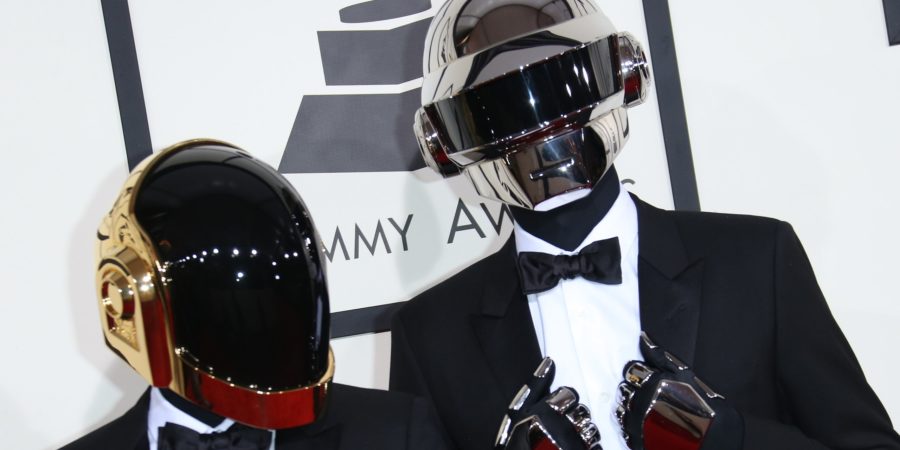Daft Punk, an internationally famous electronic music duo, officially called it quits Feb. 22 with the release of “Epilogue”.
Released on Daft Punk’s official YouTube channel, “Epilogue” is an eight minute short film repurposing clips from the 2006 experimental sci-fi film ‘Electroma’. It serves as an unofficial end to the group’s time, and is currently the only accessible thing on their website.
In “Epilogue”, the members of Daft Punk, Thomas Bangalter and Guy-Manuel de Homem-Christo, walk in full costume through a desert. Bangalter abruptly stops, bowing his head as De Homem-Christo doubles back. The two look at each other, and the wind whistles around them. Bangalter then takes off his jacket, revealing a self-destruct button on his back. De Homem-Christo, after some hesitation, presses the button, activating a minute long timer.
The loud, electronic beeping of the timer echoes throughout the scene as Bangalter calmly walks away. De Homem-Christo looks on as Bangalter, well out of reach, once more stops. With only a few more seconds left, Bangalter clenches his fist, keeping his head towards the desert’s horizon. When the timer ends, Bangalter explodes.
As the dust settles, “Touch”, the seventh song on Daft Punk’s final studio album, plays. Full of synths and strings, “Touch” also transitions the film from ‘Electroma’ clips to an original illustration. Daft Punk’s iconic silver and gold hands frame a golden light, with a caption that almost seems to be missing an accompanying epitaph: “1993-2021”.
“Epilogue” ends with more ‘Electroma’ footage, now showing De Homem-Christo walking towards a sunrise. “Touch’s” chorus echoes one final message for fans as the video ends: “Hold on, if love is the answer, you’re home.”
After the video was released, Kathryn Frazier, who worked as Daft Punk’s publicist for years, told Pitchfork that, yes, the group was splitting up. No official reason was given, and, considering Bangalter and De Homem-Christo are famous for their commitment to anonymity, many doubt any explanation will be given.
“But if this is the end for Daft Punk, perhaps we shouldn’t mourn too much,” Justin Sayles writes for The Ringer. “We should be thankful that they went out with a little mystique, helmets on and all.”
Fans flooded social media with tributes to Daft Punk as the news quickly went viral. Single and album streams went up exponentially, and The Rolling Stone reported that digital album sales skyrocketed an astounding 2650%.
Daft Punk, active for 28 years, were considered industry juggernauts. All four of their studio albums — “Homework”, “Discovery”, “Human After All” and “Random Access Memories” — had songs that received Grammy nominations. Of these nominations, “Random Access Memories” won four, including “Album of the Year”. They also collaborated with a wide variety of artists over the years, such as The Weeknd, Kanye West, Giovanni Moroder and Julian Casablancas.
Many were drawn in by their unique music style and presentation, as they experimented with the true limitations of talk boxes, synths and real world instruments for years. They remain one of the few bands to have hits in three separate decades, with songs like “Around the World”, “Harder, Better, Faster, Stronger” and “Get Lucky” charting across the world.
It is unlikely that there will ever be a band quite like Daft Punk again. Though it’s painful to see them go, their music will continue to inspire fans and artists alike for years to come. Rest easy, robots.























